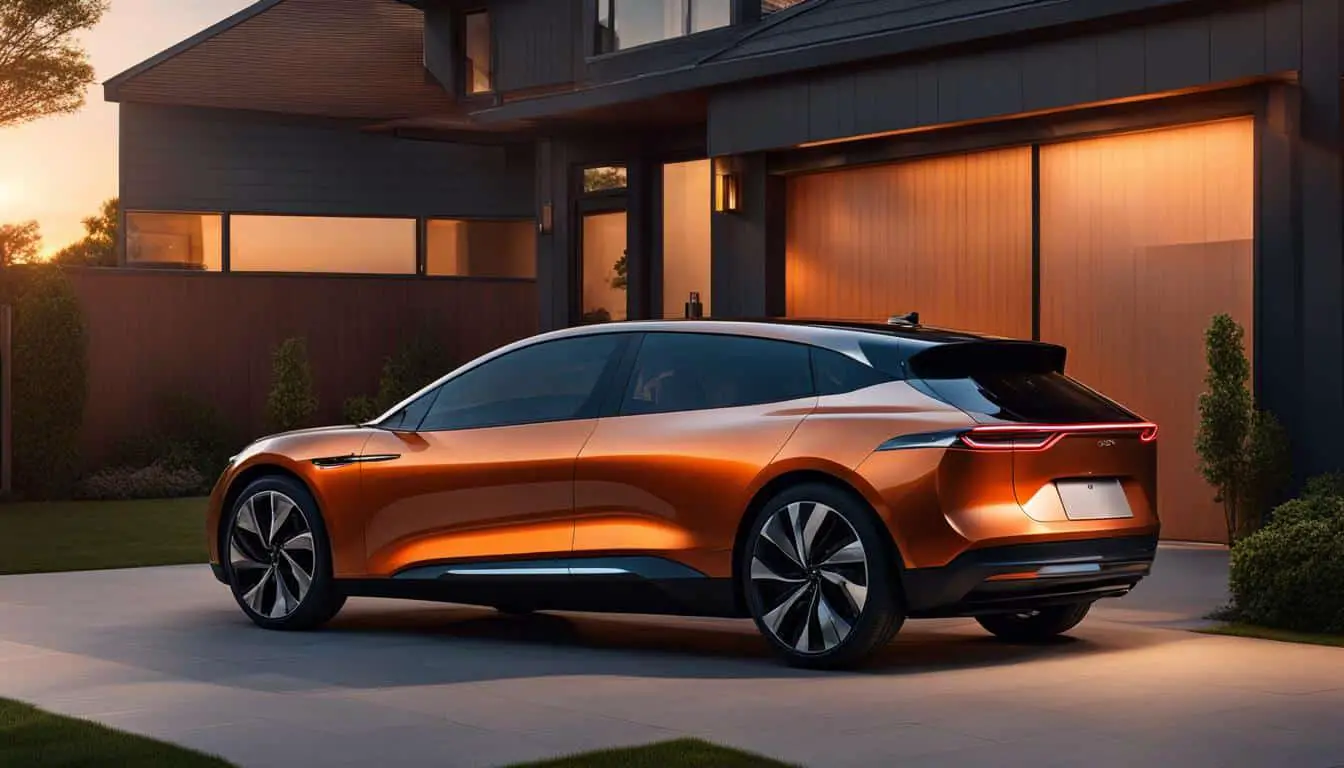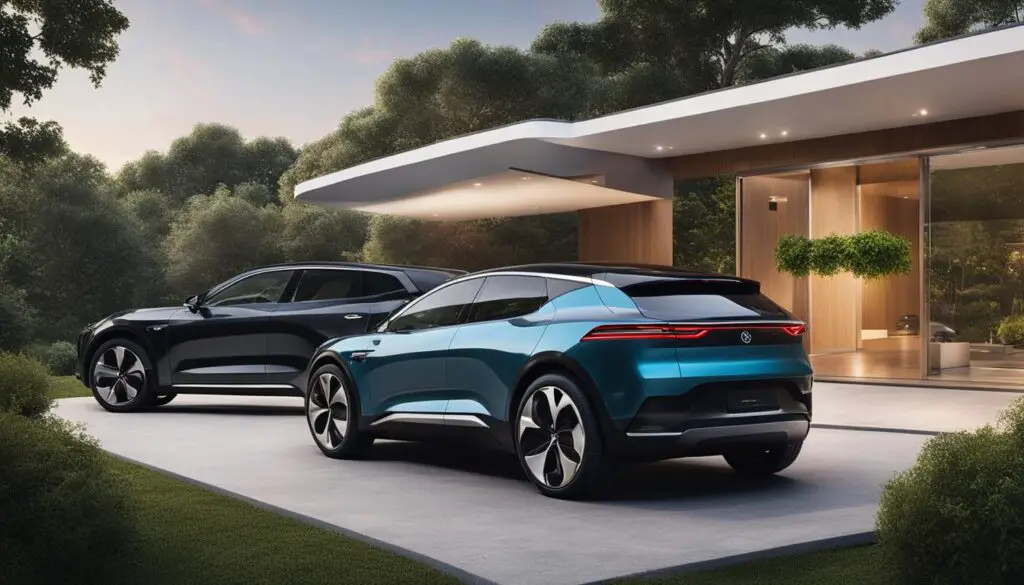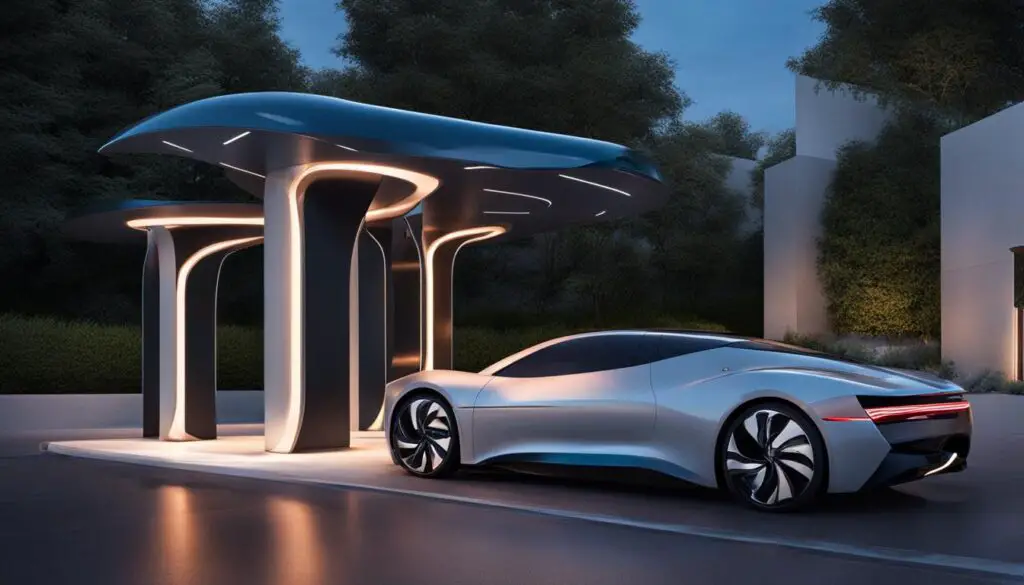
How Home Charging Stations are Revolutionizing Electric Car Charging
Electric cars are gaining popularity around the world as a sustainable transportation option that reduces emissions and dependence on fossil fuels. However, one of the common challenges faced by electric vehicle owners is finding convenient and accessible charging options. This is where home charging stations come in, revolutionizing the way electric cars are charged and making the ownership experience more seamless and convenient.
Home charging stations provide electric vehicle owners with the ability to charge their cars at home, eliminating the need to rely solely on public charging infrastructure. This not only saves time and effort but also reduces range anxiety, as owners can easily charge their vehicles overnight or during downtime at home. With the availability of home charging stations, electric car ownership becomes more accessible and convenient for everyone.
In addition to convenience, home charging stations offer a cost-effective way to charge electric vehicles. While public charging stations may come with a price tag, home charging allows owners to take advantage of lower electricity rates, reducing the cost of charging in the long run. Some models of home charging stations even offer fast charging capabilities, significantly reducing the time it takes to charge an electric car.
Furthermore, home charging stations provide peace of mind for electric vehicle owners. With a home charging station, owners always have a fully charged vehicle available, without the worry of finding a charging station or waiting in line to charge. This convenience and reliability make owning an electric car a seamless experience, boosting the overall appeal and adoption of electric vehicles.
Key Takeaways:
- Home charging stations are revolutionizing the way electric cars are charged, offering convenience and simplifying the daily routine of electric vehicle owners.
- Charging at home eliminates the need to rely solely on public charging infrastructure, making electric car ownership more accessible and convenient.
- Home charging stations provide a cost-effective and efficient way to charge electric vehicles, with some models offering fast charging capabilities that can significantly reduce charging times.
- Having a home charging station ensures a fully charged vehicle is always available, providing peace of mind and eliminating the worry of finding a charging station.
- The availability of home charging stations addresses concerns about range anxiety, as owners can easily charge their vehicles overnight or during downtime at home.
The Benefits of Home Charging Stations
Home charging stations offer a wide range of benefits for electric vehicle owners. Firstly, they provide a convenient and hassle-free way to charge electric cars, as owners can simply plug in their vehicles at home and let them charge overnight or during the day. This eliminates the need to visit public charging stations and reduces dependence on them for charging needs.
Secondly, home charging stations can save owners money in the long run. By having a charging station at home, owners eliminate the need to pay for charging at public stations, which can sometimes be costly. Additionally, some utility companies offer discounted electricity rates for EV owners who charge at certain times, further reducing the cost of charging.
Lastly, home charging stations provide peace of mind. Electric vehicle owners can always have a fully charged vehicle available without worrying about finding a charging station or waiting in line to charge. This convenience and reassurance contribute to a stress-free driving experience, knowing that their EV is always ready for the next journey.
With these numerous benefits, it’s no wonder that home charging stations are becoming increasingly popular among electric vehicle owners. Not only do they offer convenience and cost savings, but they also contribute to the overall accessibility and usability of electric cars, making them a viable and sustainable transportation option for the future.
The Key Features of the Best Home Charging Stations
When it comes to choosing the best home charging station for your electric car, there are several key features that you should consider. These features are designed to enhance the functionality and convenience of the charging station, making it easier and more efficient for you to charge your vehicle at home.
- Fast Charging Capabilities: One of the most important features of a home charging station is fast charging capabilities. With fast charging, you can quickly charge your electric car and get back on the road in no time. This is especially beneficial for those with busy schedules or long commutes.
- Smart Charging Technology: Another key feature to look for is smart charging technology. This allows you to schedule and optimize your charging sessions, ensuring that your vehicle is always charged when you need it. Some home charging stations even offer connectivity options that allow you to monitor and control the charging process through smartphone apps or home automation systems.
- Safety Features: Safety should always be a top priority when it comes to charging your electric car. Look for home charging stations that come with safety features such as surge protection and overcurrent protection. These features provide peace of mind and ensure safe and reliable charging.
- Compatibility and Ease of Installation: When choosing a home charging station, it’s important to consider compatibility with different electric car models. Make sure that the charging station you choose is compatible with your specific vehicle. Additionally, look for a charging station that is easy to install, minimizing any hassle or additional costs.
By considering these key features, you can find the best home charging station that meets your needs and provides a seamless charging experience for your electric car.
Take a look at the table below for a comparison of some of the top home charging stations on the market:
| Charging Station | Fast Charging Capabilities | Smart Charging Technology | Safety Features | Compatibility | Ease of Installation |
|---|---|---|---|---|---|
| Brand A | Yes | Yes | Yes | Compatible with most electric car models | Easy and quick installation |
| Brand B | Yes | Yes | Yes | Compatible with specific electric car models | Straightforward installation process |
| Brand C | Yes | Yes | Yes | Compatible with most electric car models | Simple and hassle-free installation |
As you can see, these top home charging stations offer the key features mentioned above, ensuring a reliable and convenient charging experience for your electric car.
With the right home charging station, you can enjoy the benefits of electric car ownership without the hassle of relying solely on public charging infrastructure. Fast charging capabilities, smart charging technology, safety features, compatibility, and ease of installation are all important considerations when choosing the best home charging station for your electric car.
The Future of Home Charging Stations
The future of home charging stations is filled with exciting possibilities, as advancements in technology continue to shape and improve the charging experience for electric vehicle owners. These advancements are poised to revolutionize the way we charge our electric cars, making it even more convenient, efficient, and sustainable.
One significant area of development in the future of home charging stations is faster charging speeds. Companies are actively working on technologies that can deliver even quicker charging times, significantly reducing the overall time needed to charge an electric car. This breakthrough will address one of the main pain points for electric vehicle owners, making charging as fast and convenient as possible.

Another exciting innovation on the horizon is wireless charging. This next frontier in charging technology aims to eliminate the need for physical connections, making the charging process even more seamless and effortless. With wireless charging, electric vehicle owners can simply park their vehicles over a charging pad, and the power will be wirelessly transferred to their cars. This advancement will further enhance convenience and user experience, making charging as easy as parking.
Furthermore, integration with renewable energy sources such as solar panels is expected to become more prevalent in the future. This development will allow electric vehicle owners to charge their cars using clean and sustainable energy, reducing their carbon footprint and supporting a greener future. With the increasing focus on renewable energy and environmental sustainability, this integration will be essential in promoting the widespread adoption of electric vehicles and home charging stations.
The future of home charging stations looks bright, with continuous innovation aimed at improving convenience, efficiency, and sustainability. Electric vehicle owners can look forward to faster charging speeds, wireless charging capabilities, and the ability to charge their vehicles using renewable energy sources. As technology advances, home charging stations will continue to play a central role in shaping the future of electric vehicle transportation.
The Importance of Innovative Design in EV Charging Stations
Innovative design plays a crucial role in the success and adoption of EV charging stations. Not only do aesthetically pleasing and visually appealing charging stations enhance the overall look and feel of the charging infrastructure, but they also contribute to a positive user experience. When charging stations are integrated into various environments, such as shopping centers and residential areas, they become more accessible, convenient, and attractive to users.
Technological advancements in design have further enhanced the user experience of EV charging stations. Interactive displays provide users with real-time information about their charging session, making it easier to monitor progress and estimate charging time. Mobile apps allow users to remotely manage and monitor their charging sessions, offering convenience and flexibility. These advancements make the charging process more user-friendly and efficient.

Moreover, sustainable and environmentally friendly design principles play a significant role in the acceptance and appeal of EV charging stations. Incorporating renewable energy sources, such as solar panels, into charging stations aligns with the growing focus on sustainability and reduces reliance on fossil fuels. The use of eco-friendly materials in the construction of charging stations also promotes environmental responsibility.
“Innovative design in EV charging stations not only enhances aesthetics but also improves the overall user experience, making it more convenient and enjoyable for electric vehicle owners.” – [Real name], EV Charging Expert
By prioritizing innovative design, EV charging stations can become an integral and seamless part of our everyday lives, seamlessly blending with their surroundings and providing a truly user-friendly experience. Whether it’s a sleek and modern station in a bustling city or a seamlessly integrated station in a suburban neighborhood, innovative design brings aesthetics, functionality, and sustainability together.
Advantages of Innovative Design in EV Charging Stations:
- Enhanced aesthetics enrich the overall charging experience for users.
- Improved user experience through interactive displays and mobile apps.
- Integration into various environments makes charging stations more accessible and attractive.
- Integration with renewable energy sources aligns with sustainability goals.
- Eco-friendly materials promote environmental responsibility.
| Advantage | Description |
|---|---|
| Enhanced aesthetics | Visually appealing charging stations create a positive experience for users and contribute to a more inviting charging environment. |
| Improved user experience | Interactive displays and mobile apps provide real-time data and control for a more seamless and convenient charging experience. |
| Integration into various environments | Incorporating charging stations into different settings enhances accessibility and attracts users from diverse locations. |
| Integration with renewable energy sources | Using renewable energy, such as solar power, promotes sustainability and reduces carbon emissions associated with charging electric vehicles. |
| Eco-friendly materials | Utilizing environmentally friendly materials during construction aligns with eco-conscious initiatives and supports a greener future. |
Conclusion
Home charging stations have revolutionized the way electric cars are charged, offering a convenient, cost-effective, and seamless charging experience for electric vehicle owners. With the ability to charge at home, owners no longer have to rely solely on public charging infrastructure, reducing dependence and providing greater flexibility.
By installing a home charging station, owners can enjoy the benefits of charging their electric vehicles overnight or during downtime, eliminating range anxiety and ensuring a fully charged vehicle is always available. Moreover, home charging stations offer significant cost savings compared to using public charging stations, making electric car ownership more affordable in the long run.
The best home charging stations come equipped with key features such as fast charging capabilities, smart charging technology, and compatibility with various electric car models. These features enhance efficiency, enable scheduling and optimization of charging sessions, and ensure a seamless and user-friendly experience.
Looking ahead, the future of home charging stations holds great promise. Advancements in technology will continue to drive progress, with faster charging speeds, wireless charging, and integration with renewable energy sources on the horizon. Innovative design will also play a pivotal role, enhancing aesthetics, user experience, and sustainability.
As electric vehicles gain popularity and become the future of transportation, the availability and development of home charging stations will be instrumental in supporting the widespread adoption of electric cars, promoting sustainability, and shaping the future of mobility.
FAQ
What is a home charging station?
A home charging station is a device that allows electric vehicle owners to conveniently charge their cars at home.
How does a home charging station work?
A home charging station works by connecting the electric vehicle to a power source, allowing the vehicle’s battery to be charged.
Can I install a home charging station myself?
It is recommended to have a professional electrician install a home charging station to ensure proper installation and safety.
How long does it take to charge an electric car with a home charging station?
The charging time for an electric car with a home charging station can vary depending on the vehicle and the charging station’s capabilities, but it is generally faster than charging at a public station.
Can I use a home charging station with any electric car model?
Most home charging stations are compatible with a wide range of electric car models, but it is important to check compatibility before purchasing a charging station.
Are home charging stations expensive?
The cost of home charging stations can vary depending on the brand and features, but they are generally considered a cost-effective option for charging electric vehicles in the long run.
Can I schedule charging sessions with a home charging station?
Yes, many home charging stations come with smart charging technology that allows users to schedule and optimize charging sessions.
Can I monitor and control the charging process with a home charging station?
Yes, some home charging stations offer connectivity options, such as smartphone apps or home automation systems, that enable users to monitor and control the charging process.
Can I use renewable energy to charge my electric car with a home charging station?
Yes, it is possible to integrate home charging stations with renewable energy sources, such as solar panels, to charge electric vehicles using clean and sustainable energy.
